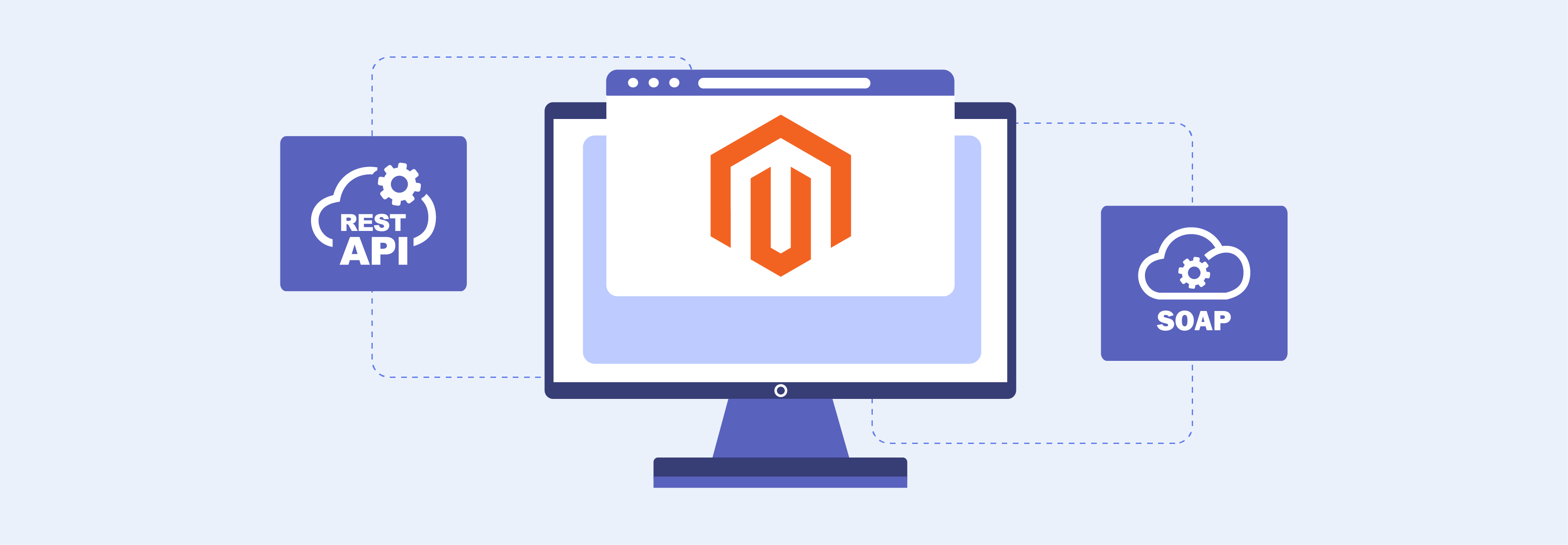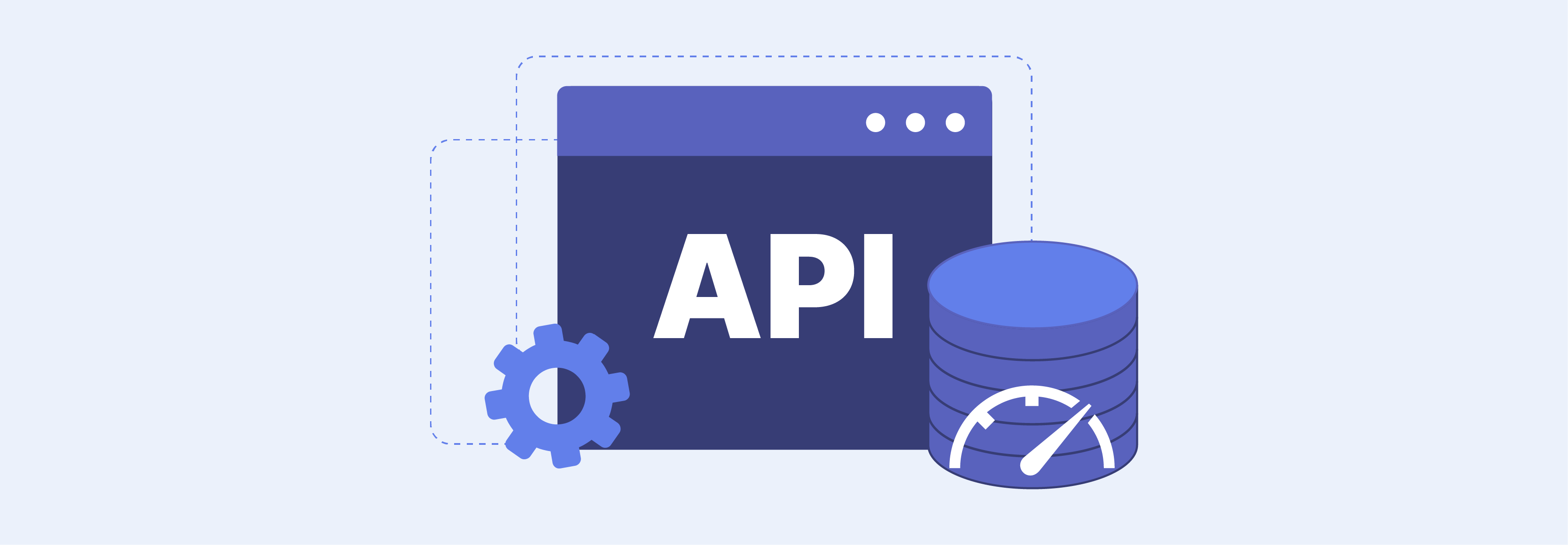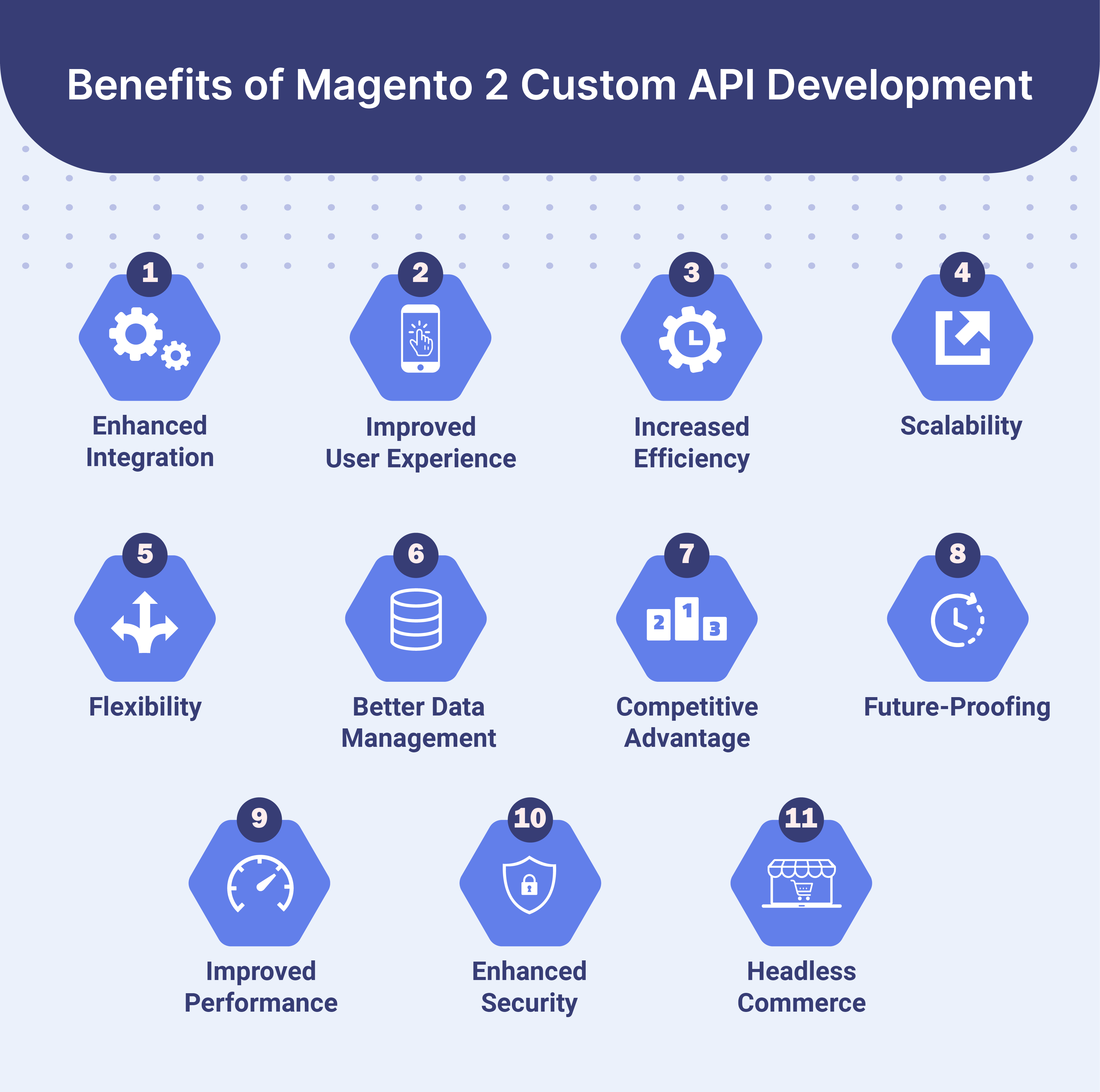
Magento 2 Custom API Development: Key Features and Benefits
Looking to explore advanced functionalities within Magento 2? Magento 2 custom API development provides tailored solutions, smooth integrations, and enhanced performance.
In this article, we will explore the key features and benefits of Magento 2 custom API development.
Key Takeaways
-
Learn how Magento 2 Custom API Development extends e-commerce capabilities.
-
Understand the importance of tailored solutions for specific business needs.
-
Explore the features of Magento 2 custom development, including REST and SOAP support.
-
Discover the benefits of Magento 2 custom API development, such as enhanced integration.
What is Magento 2 Custom API Development?

Magento 2 Custom API Development involves creating custom Application Programming Interfaces (APIs) in the Magento 2 e-commerce platform.
APIs are a set of rules and protocols. These allow different software applications to communicate with each other. Custom API in Magento 2 enables external systems to interact with the Magento store. These external systems include:
-
Mobile apps
-
Third-party integrations
-
Other web applications.
Custom API development in Magento 2 allows developers to extend the functionality of the platform beyond its capabilities. It enables businesses to create tailored solutions that meet their specific requirements. It also helps integrate Magento with other systems.
Developers can create custom APIs in Magento 2 using the framework's web API features. This involves:
-
Defining endpoints
-
Request and response formats
-
Other specifications according to the needs of the project.
Custom APIs can be designed for various purposes, such as managing:
It also helps perform other administrative tasks.
Key Features of Magento 2 Custom API Development
1. Magento 2 REST and SOAP API

Magento 2 supports both REST (Representational State Transfer) and SOAP (Simple Object Access Protocol) API architectures. Developers can choose the appropriate architecture based on their requirements and the systems they are integrating with.
REST API in Magento 2 uses lightweight JSON for data transmission, making it fast and efficient. SOAP APIs use XML for data exchange. It offers built-in security and transaction management.
2. API Endpoints
Custom APIs in Magento 2 are defined through API endpoints. These endpoints specify the:
-
URL structure
-
HTTP methods (GET, POST, PUT, DELETE).
These are used to interact with the API.
3. Authorization and Authentication
Magento 2 provides built-in mechanisms for API authorization and authentication. Developers can secure API using OAuth (Open Authorization) or token-based authentication. It also ensures that only authorized clients can access them.
Role-based access control allows granular permissions for different API users. Input validation and output escaping help prevent common security vulnerabilities.
4. Resource Models
Custom rest API in Magento 2 often involves creating resource models. These models define the data structure and behavior of the API. These resource models are also responsible for:
-
Retrieving
-
Updating
-
Deleting data from the Magento 2 database.
5. API Responses
APIs typically return data in a structured format, such as:
-
JSON (JavaScript Object Notation)
-
XML (eXtensible Markup Language).
Developers define the structure and content of the API responses. It is based on the requirements of the integrating systems.
6. API Documentation
Proper documentation ensures the usability and maintainability of custom APIs. Magento 2 provides tools and guidelines for generating API documentation. These tools include:
-
Swagger
-
API schemas.
7. Testing and Debugging

Developers should thoroughly test the custom APIs to ensure their:
-
Functionality
Magento 2 provides tools and techniques for API testing and debugging, such as the Magento 2 API Tester and the Postman tool.
8. Extensibility
Magento 2 allows developers to extend existing APIs or create custom rest APIs. Custom APIs can be built to integrate Magento with:
-
Third-party systems
-
Mobile apps
-
Custom frontend experiences.
The extensibility of Magento APIs enables tailored solutions to meet specific business requirements.
9. API Versioning
Magento 2 supports API versioning. It allows multiple versions of an API to coexist. Versioning enables backward compatibility and smooth transitions when updating APIs. Clients can specify the desired API version in their requests. It helps ensure compatibility.
10. API Documentation
Magento 2 automatically generates API documentation based on code annotations. The generated documentation includes:
-
Endpoint details
-
Request/response formats
-
Authentication requirements.
Swagger, a popular API documentation tool, is integrated into Magento 2. It helps in easy API exploration and testing.
11. Asynchronous and Bulk Operations
Magento 2 supports asynchronous API requests for long-running or resource-intensive operations. Bulk API operations allow multiple actions to be performed in a single request. It helps improve performance. Asynchronous and bulk operations help optimize API performance and responsiveness.
12. Event-Driven Architecture
Magento 2 follows an event-driven architecture. It allows developers to hook into various system events. Custom APIs can be triggered based on specific events. It enables real-time integrations and workflows. The event-driven approach promotes loose coupling and extensibility of the system.
13. API Rate Limiting and Throttling
Magento 2 includes rate limiting and throttling mechanisms. These help protect the Magento store against API abuse and ensure fair usage. Rate limiting restricts the number of API requests allowed within a specific time window. Throttling helps manage API traffic and prevents system overloading.
14. API Caching

Magento 2 supports caching of API responses to improve performance and reduce server load. Frequently accessed API responses can be cached. It minimizes redundant data retrieval. Caching can be configured based on specific API endpoints and cache expiration policies.
Benefits of Magento 2 Custom API Development

1. Enhanced Integration
Custom APIs are developed to extend the functionality of Magento 2. They allow smooth integration between Magento 2 and other systems, such as:
-
ERP (Enterprise Resource Planning)
-
CRM (Customer Relationship Management)
-
Third-party services and extensions.
The third-party services include:
-
Shipping providers
-
Marketing tools
-
Analytics platforms.
It enables efficient data exchange, synchronization, and automation of business processes.
2. Improved User Experience
By developing custom APIs, you can create personalized experiences for your customers. For example, you can integrate your Magento 2 store with:
-
Mobile apps
-
Chatbots
-
Voice assistants.
It provides customers with multiple channels to interact with your brand.
3. Increased Efficiency
Custom APIs streamline operations by automating tasks and reducing manual intervention. It helps save time and resources. It allows your team to focus on core business activities.
4. Scalability
Magento 2 custom APIs enable your e-commerce store to scale effortlessly. As your business grows, you can easily and without compromising performance:
-
Integrate new features
-
Add more sales channels
-
Expand to new markets.
5. Flexibility
Custom API development provides the flexibility to tailor your Magento 2 store to your specific business requirements. You can create a custom rest API that caters to your:
-
Unique processes
-
Custom data structures
-
Workflows.
6. Better Data Management
With custom APIs, you have better control over your data. You can define how data is:
-
Accessed
-
Modified
-
Shared across different systems.
It ensures data integrity and security.
7. Competitive Advantage
By leveraging custom APIs, you can differentiate your e-commerce store from competitors. You can offer unique:
-
Features
-
Services
It enhances the customer experience and drives business growth.
8. Future-Proofing
Custom API development future-proofs your Magento 2 store. As technology evolves and new platforms emerge, having well-designed APIs can be very beneficial. It allows you to adapt and integrate your store with new systems easily. It also eliminates the need for any significant modifications to your core platform.
9. Improved Performance
Custom APIs can be optimized for performance. It ensures fast response times and efficient data transfer. You can design APIs that retrieve only the necessary data and employ caching mechanisms. It helps enhance the overall performance of your Magento 2 store.
10. Enhanced Security
Magento 2 custom APIs allow you to implement powerful security measures. You can:
-
Enforce authentication and authorization protocols
-
Encrypt sensitive data
-
Apply rate limiting.
These mechanisms help protect your store from unauthorized access and potential security breaches.
11. Headless Commerce
Magento 2 custom and rest APIs lay the foundation for headless commerce architecture. It decouples the front end from the back end. This makes the same backend API deliver content and commerce experiences across multiple channels, such as:
-
Web
-
Mobile
-
IoT devices
-
Digital signage.
Difference Between Built-in and Custom APIs
| Aspect | Built-in APIs | Custom APIs |
|---|---|---|
| Source | It is provided by the platform developers. | It is developed by users or developers based on specific project requirements. |
| Purpose | These APIs serve fundamental functionalities within the platform. These include file I/O, networking, GUI elements, or database access. | These APIs address specific project needs. They integrate with external systems or extend platform capabilities. |
| Scope | It generally covers a wide range of functionalities required for common tasks. | It is tailored to meet the precise requirements. It focuses on specific features or services. |
| Maintenance | Managed and updated by the platform maintainers. It ensures stability and compatibility. | Require active maintenance by the developers. These include bug fixes, updates, and documentation enhancements. |
| Documentation | It is typically well-documented, with comprehensive resources. The resources are provided by platform developers. | Documentation may vary in quality and completeness. It depends on the developers' efforts. |
| Flexibility | They offer limited customization options. They are standardized across the platform. | They are highly customizable to suit unique project needs. They offer flexibility in design and implementation. |
| Integration | It is primarily used within the platform itself to access its built-in features. | It facilitates smooth integration with external systems, APIs, or services. |
FAQs
1. What is the role of a module in Magento 2 Custom API Development?
A module in Magento 2 serves as a container for various components. These include controllers, models, and views, including APIs. When developing a custom API, creating a module is the initial step.
2. How does an interface contribute to Magento 2 Custom API Development?
Interfaces define the structure and behavior of APIs in Magento 2. They serve as contracts that specify the methods and parameters a custom API endpoint must implement.
3. Why is the di.xml file important in Magento 2 Custom API Development?
The di.xml file helps configure dependencies and inject them into Magento 2 objects, including custom APIs. By properly configuring dependencies through the di.xml file, developers can ensure that custom APIs public function correctly within the Magento 2 framework.
4. How are param string, PHP namespace, return string, and inheritdoc used in Magento 2 Custom API Development?
Param string specifies input parameter data types. PHP namespace defines the scope and context of code components. The return string indicates the data type returned by API methods. Inheritdoc inherits documentation from parent classes or interfaces.
Summary
Magento 2 custom API development expands e-commerce capabilities by creating tailored APIs for the Magento 2 platform. The article also explores several other points, including:
-
It enables communication between Magento stores and external systems like mobile apps.
-
Key features of Magento 2 custom API development include defined API endpoints.
-
Custom APIs facilitate integration with third-party systems and enhance user experiences.
-
Other benefits include better data management, competitive advantages, and future-proofing.
Ready to utilize Magento 2 custom API development for your e-commerce store? Enhance the security and performance of your store with managed Magento hosting solutions.




